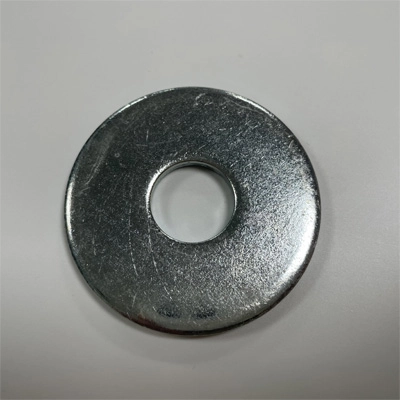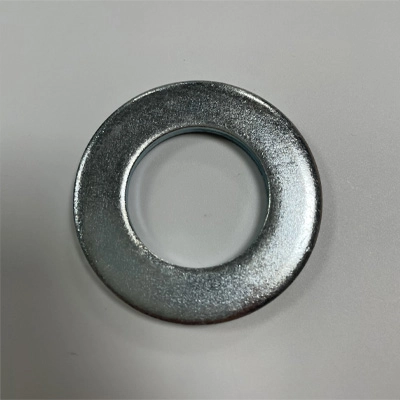caTEGORIES
Tags
Which Washer Types Provide Optimal Stability in Vibrating Assemblies
Posted: August 29, 2025
Categories: News
Vibration in cars, planes, and big machines keeps pushing against their strength, causing bolts to loosen, parts to wear out, and even break downs. Great fixes—like wedge-locking washers, Belleville springs, and tough DIN 125A washers—hold tension and fight shaky forces. Key tricks include picking the right materials (like stainless steel or zinc-plated), controlling torque carefully, and checking things regularly. For ISO-certified, vibration-proof fasteners, Qewitco Fasteners delivers awesome solutions since 2004.

Challenges of Maintaining Mechanical Assemblies in High-Vibration Environments
Vibration’s Impact on Assembly Integrity Over Time
In shaky spots like cars, planes, or factory machines, constant vibrations stress out mechanical setups. They cause tiny shifts between parts, which can loosen bolts and nuts. This leads to more wear on surfaces and, worst case, total joint failure.
Those repeated shakes create fatigue in bolts and washers. It’s a big deal when preload—the starting tightness on a bolt—slips away due to wiggles or sliding. Without that tension, parts can come apart or get out of line, messing up performance and safety big time.
Typical Failure Modes for Washers Under Continuous Vibration
Washers might seem small, but they’re super important for spreading loads and keeping joints steady. In vibrating setups, regular flat washers can run into problems:
- Losing Grip: Flat washers might squish or bend under constant shaking, dropping bolt tension.
- Surface Wear: Tiny slips from vibration cause fretting corrosion on contact spots.
- Cracking: Weak materials or bad shapes can crack under repeated stress.
To dodge these issues, pick washers based on the specific shakes and loads your setup faces.
Key Considerations for Choosing Washers in Vibrating Applications
Material Properties Ensuring Washer Durability and Performance
Picking the right stuff for washers is huge in shaky environments. Washers made from strong carbon steel or stainless steel hold up better against bending and wear. For example, Flat Round Washers DIN 125A come in carbon steel, stainless steel, or brass with hardness up to 200HV or more—perfect for handling vibration wear.
Rust protection matters too. Zinc-plated or hot-dip galvanized finishes keep washers from breaking down in tough conditions over time.

Washer Geometry’s Influence on Surface Contact and Load Distribution
The shape of a washer changes how loads spread across a joint. Conical ones like Belleville washers act like springs, keeping tension even if parts settle. Toothed or serrated washers grip better by adding friction where they touch.
Wedge-locking shapes are super cool because their cam faces turn twisting into extra tightening force, actively stopping loosening instead of just fighting it.
Washer Compatibility with Fastener Types and Assembly Loads
Washers gotta match the bolts or nuts and the tension needs of your setup. Pairing a soft washer with a high-strength bolt (like Grade 10.9) can cause it to sink in or deform under pressure.
If your setup has changing loads or hot-cold cycles, keeping preload is even more important. That’s when spring-type or wedge-locking washers really shine.
Washer Types Engineered for Vibration Resistance
Spring Washers’ Role in Maintaining Load Consistency Under Cyclic Loading
Spring washers, like split lock washers, flex a bit to handle small shifts in tension from vibration. Their spiral shape works like a spring when tightened. They’re great for light jobs, but for heavy loads, you might need extra locking tricks.
Lock Washers’ Reliability with Split, Tooth, or Wedge Features
Lock washers come in a few styles:
- Split Lock Washers: Sharp ends dig into surfaces for extra grip.
- Toothed Lock Washers: Teeth on the inside or outside bite to stop twisting.
- Wedge-Locking Washers: Cam-faced pairs tighten more when things try to loosen.
Wedge-locking ones are the best because they fight loosening forces head-on, not just by adding friction.
Belleville Washers’ Use for Preload Retention
Belleville (disc spring) washers are awesome when you need steady tension in setups where parts settle. Their cone shape flexes under pressure but keeps pushing back, perfect for systems with heat changes or material creep that could loosen things up over time.
Qewitco’s Solutions for High-Vibration Washer Applications
If you’re tackling tough vibration problems and need solid fastening answers, Qewitco is your go-to. As a formally British wholly owned business, Qewitco mixes Western-style service with Far Eastern value to deliver top-notch fasteners worldwide—including a huge range of anti-vibration washers for rough industries.
Qewitco has the infrastructure and all the experience needed to offer you a ‘value for money’ service, including quality control certifications like ISO9001 and PPAP Level 3 compliance. Their technical support team provides engineering insights tailored to your application needs—especially valuable when selecting customized wedge-locking solutions built for dynamic assemblies.
One example is their Flat Round Washers DIN 125A, which conform to DIN standards and offer excellent hardness levels suitable for high-vibration applications across automotive and industrial sectors.
Best Practices for Using Washers in High-Vibration Assemblies
Importance of Managing Preload Through Torque Control
Getting torque right keeps clamping force perfect without over-stressing parts. Use calibrated torque wrenches for steady results. For critical joints, try torque-angle methods or tension-monitoring tools during setup.
You also gotta watch for relaxation over time. Some setups need re-torquing after a bit to make up for settling between washer surfaces and parts.
Surface Conditions’ Effect on Washer Performance During Installation
Clean surfaces are a big deal for washers to work right. Dirt or oil can mess up the friction lock washers need. Clean everything well before setup, and skip lubes unless the design calls for them.
Also, make sure contact spots are flat. Uneven surfaces can mess up load spreading, even with fancy washers like Belleville types.
Maintenance Intervals for Long-Term Reliability
Set up check routines based on how much your setup runs, not just time. Look for fretting corrosion around washer edges—a sign of tiny movements. Check torque now and then with calibrated tools.
For super important setups like plane parts or engine mounts, use visual markers on fasteners that change color if tension drops too low from washer issues or loosening.
Common Applications of Vibration-Resistant Washers Across Industries
Automotive Powertrain Systems’ Benefits from Specialized Washer Designs
Car engines make tons of vibration from combustion and drivetrain action. Parts like exhaust manifolds, engine mounts, or suspension brackets need strong fastening systems with lock washers to stay tight under heat and shocks. Washer materials gotta handle oils and road salts, so zinc-plated stainless steel is a top pick.
Aerospace Fastening’s Dependence on Preload-Retaining Washers
In planes, where saving weight is key but safety can’t slip, every joint needs to stay solid despite crazy G-forces during takeoff or landing. Wedge-locking systems are great here. Their self-tightening setup works perfectly for aircraft wings or turbine bolts.
Anti-Vibration Fasteners’ Role in Heavy Machinery Stability
Big equipment like crushers, generators, or compressors runs non-stop under heavy vibration. Tough materials paired with spring-loaded washers keep things solid over long maintenance gaps, cutting downtime and boosting factory output.
Recommended Washer Strategies with Qewitco Integration
Matching Washer Types to Load Profiles Based on Application Dynamics
Your pick depends on your setup: For steady loads with light shakes, flat hardened washers do the job. Moving systems like springy Belleville types. Extreme cases need wedge-locking pairs that fight loosening from motion or heat changes. Always match washer hardness to bolt grade and pick rust-proof ones for tough environments like marine engines.
Leveraging Expert Support for Custom Anti-Vibration Strategies
Instead of just picking from catalogs, team up with suppliers who get real-world challenges. Qewitco offers bespoke non-standard fastening products in line with customer drawings—ensuring your anti-vibration solution isn’t just off-the-shelf but purpose-built from metallurgy through geometry down to finishing treatments like zinc flake coating or Geomet plating.
FAQ
Q: Can I reuse anti-vibration washers after disassembly?
A: It depends on the type; flat washers can often be reused if undamaged but wedge-locking types should generally be replaced due to potential wear on cam faces affecting performance reliability.
Q: How do I know if my current washer setup is failing?
A: Indicators include loss of bolt tension (preload), visible fretting corrosion around joints, noise during operation from loosened parts—all signs that suggest reevaluation of your washer strategy is needed immediately.
Q: Are there standards governing vibration-resistant washer performance?
A: Yes, many products conform to DIN standards (e.g., DIN 125A), which specify dimensions and mechanical properties necessary for consistent performance under defined conditions—always request certification documentation when sourcing critical components. In 2024, DIN 125A-compliant flat washers were used in approximately 40% of global industrial fastening applications due to their standardized dimensions and reliability in vibration-prone environments.


